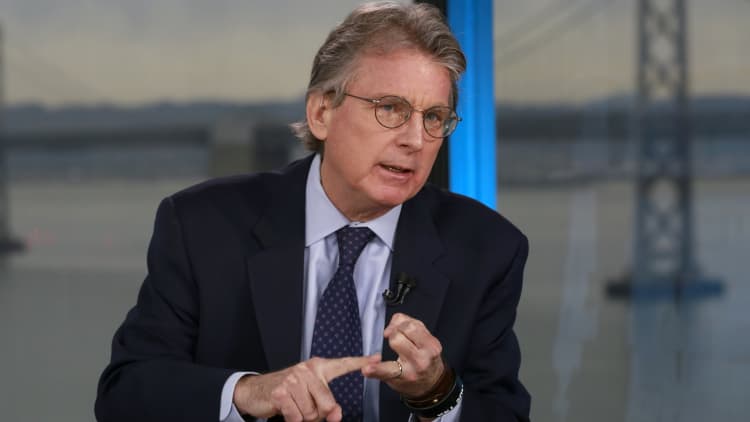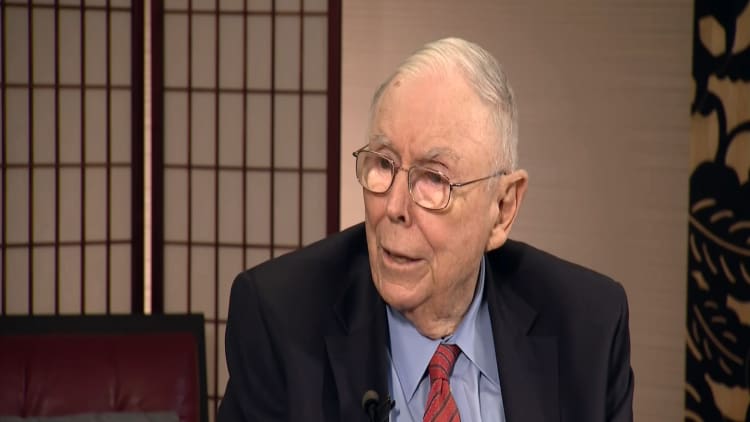Despite worries about the impact Amazon would have on the many industries it's invading, the majority of S&P 500 companies that were concerned about the Jeff Bezos-led e-commerce giant in late 2017 went on to beat the stock market.
In that year, after Amazon took over Whole Foods Market, fears grew about which industries the internet juggernaut may venture into next, including health care. The takeover also raised fears it would disrupt the retail industry in new ways. Amazon became the talk of conference calls as companies and Wall Street tried to figure out the growing threat.

Sixty-five components mentioned or were asked about Amazon during fourth-quarter 2017 earnings calls, according to a search of transcripts on FactSet. Since then, more than half (35) went on to outperform the stock market. And the outperformers aren't just high-flying tech names like Netflix: Kohl's, Starbucks and Pfizer have all posted strong gains better than that of the S&P 500.
Walmart, the largest brick-and-mortar retailer in the world, bucked Amazon fears this week. The discounter reported e-commerce sales up 43 percent during the fourth quarter and clinched online sales growth of 40 percent for all of 2018. Though Amazon still claims half of all e-commerce sales in the U.S., Walmart's investments in its online marketplace gave management reason for optimism despite the looming competition.
"We're making progress in e-commerce," CEO Doug McMillon said on a call with analysts and investors. "Our focus remains on earning repeat [shopper] visits and strengthening our assortment of merchandise."
To be sure, the outperformance could be related to the Trump administration's tax cut, which might have offered a temporary boost for brick-and-mortar retailers and other Amazon competitors in a secular sales decline. A strong economy, in part because of the tax cut, has also put a wind at the back of many companies that were struggling.

"It is possible that companies have retooled to better compete with Amazon," Noah Weisberger, chief U.S. strategist at AB Bernstein, wrote in an email. "The labor market is very strong, wage growth is moderate, the tick up in participation should not be overlooked as a positive, and the balance sheet is very healthy."
Amazon built a reputation in recent years for pivoting into new businesses or sectors and crushing its competition through renowned logistical work and aggressive price control. That practice is perhaps best witnessed in its ability to deflate the market for books, where Amazon first began taking market share from brick-and-mortar retailers like Barnes and Noble.
So when the e-commerce giant announced plans in 2017 to acquire Whole Foods, groceries chains like Kroger swooned. Sears Holdings proved another famous victim of the so-called Amazon effect, closing hundreds of locations and filing for Chapter 11 bankruptcy protection last year. A handful of other notable retailers, including J.C. Penney and Toys R Us struggled at the hands of Amazon.
Electronics retailer Best Buy has also faced competition from the internet giant over the years, promising to match the internet Goliath on pricing and vying to take market share through improved e-commerce sales.


